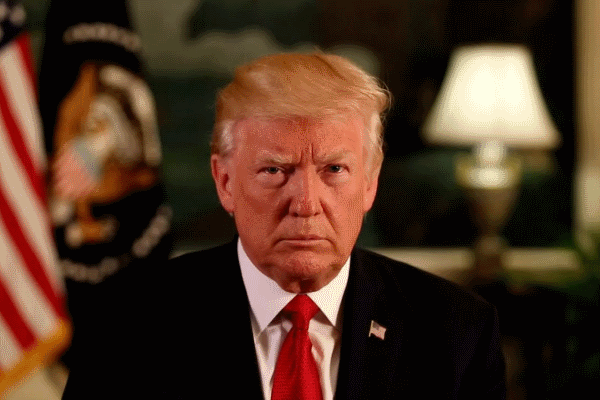
President Donald Trump’s latest attempt to curb drug prices in the US by allowing imports from Canada has been slammed by the pharmaceutical industry, which says it will open the door to unsafe medicines.
The Pharmaceutical Research and Manufacturers of America (PhRMA) has been a longstanding critic of any plan that would use imported drugs to reduce prices, and said of the latest rule that it would disrupt the US supply chain, expose people to counterfeit or substandard medicines, and worsen the opioid crisis.
The Canadian government meanwhile reiterated its view that such a plan is unworkable and could leave its domestic healthcare system facing medicine shortages.
“Our priority will always be to ensure an adequate and safe supply for Canadians first and foremost,” said Prime Minister Justin Trudeau at a news conference last week.
Critics of the move – part of Trump’s America First Health Plan – say it is a transparent attempt to win votes ahead of the November election in swing states such as Florida, which has a high proportion of older residents and has tried to introduce import legislation of its own.
The wording of the final rule insists that it “contains all requirements necessary for a sponsor to demonstrate that their importation program will pose no additional risk to the public’s health and safety.”


A perennial concern about turning to medicine imports to tackle the problem of excessively high drug prices in the US is that it could introduce a vulnerability in the supply chain that could allow unscrupulous traders to introduce falsified or out-of-date medicines into the supply chain.
One criticism has been that the FDA and law enforcement agencies lack the capacity to make sure that imported drugs are legitimate and of suitable quality.
The process envisages that “state governments or Indian tribes” will manage the import plans, which can be co-sponsored by pharmacies or wholesale distributors, with the plan subject to FDA approval.
Eligible prescription drugs would have to be bought by a nominated foreign seller, which has in turn bought them directly from the drug manufacturer, and re-labelled with the required US labelling prior to importation.
They must also undergo testing for “authenticity, degradation, and to ensure that the drugs meet established specifications and standards.”
With regard to the serialization required in the US as part of the Drug Supply Chain Security Act (DSCSA), the rule notes that the importer of a medicine is responsible for ensuring “compliance with requirements for serialization and identifying suspect or illegitimate product when the drugs arrive in the US.”
In a comment period on the proposals there were several that suggested the sponsor organisations may not have the expertise to ensure these conditions are met, but the final rule says “we are not making changes based on these comments because we believe the final rule includes sufficient mechanisms for FDA to evaluate participants in a [Section 804 Importation Programme].”
©
SecuringIndustry.com





